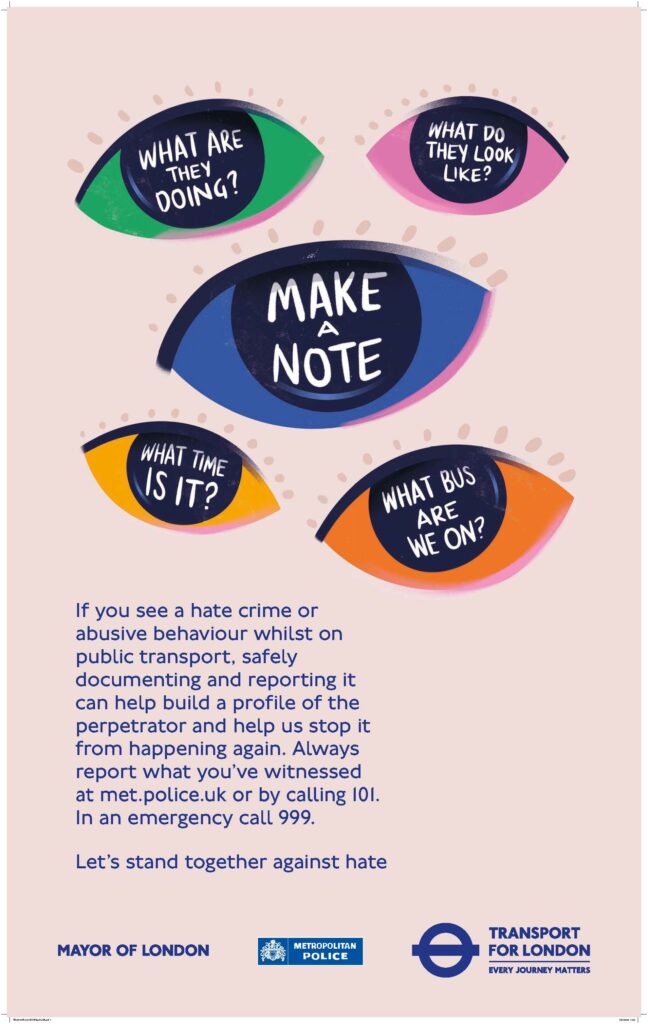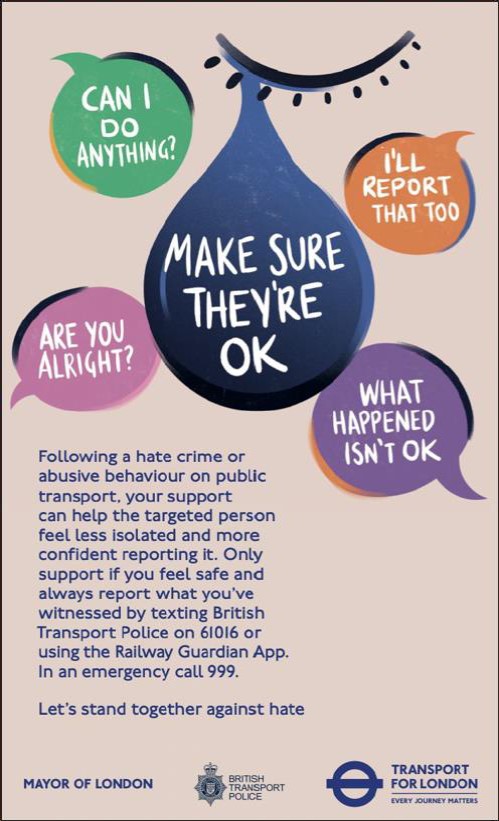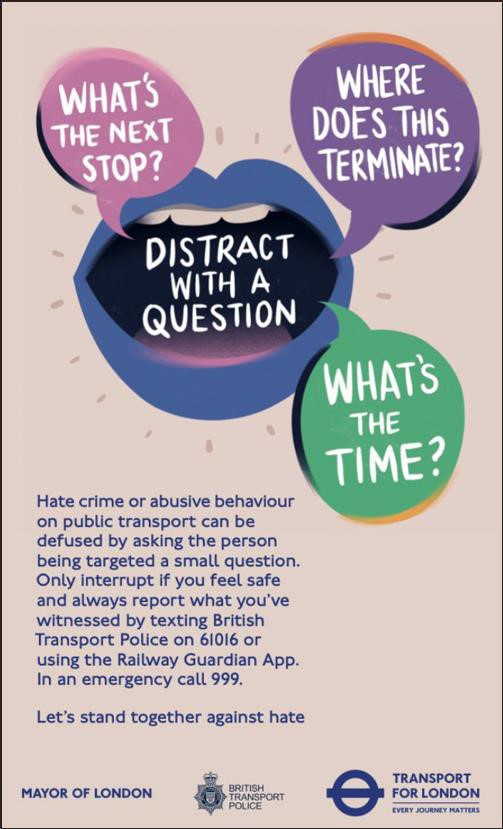Transport for London’s Active Bystander Campaign
TfL’s new active bystander campaign aims to empower the public to intervene safely to disrupt hate crime and harassment.

New Transport for London initiative
Transport for London (TfL) has launched a new initiative to tackle hate crime and abuse on public transport. The scheme, called the Bystander Awareness Campaign, encourages passengers to take a stand against harassment and abuse by intervening or reporting it to TfL staff.
Research from London Travelwatch Personal Security’s report, 2021, found that 63 per cent of passengers would feel more confident in intervening in an incident if they had more information on how to help. Research from Communities Inc has also shown that most people want to help, but don’t know how, or aren’t sure if the situation is serious enough.
The campaign, in partnership with British Transport Police (BTP) and Metropolitan Police Service (MPS), wants to build confidence in Londoners to look out for others by learning to recognise the signs of hate crime and providing information on how they can help, ignoring the offender and focusing on the person being targeted. TfL staff have been trained to identify and respond to incidents of hate crime, and posters have been distributed across the transport network to raise awareness of the campaign.
Ways to intervene safely
As part of the initiative, TfL emphasise that they do not want the public to take on the role of policing the network. Their staff continue to be trained to intervene and support victims when made aware of incidents.
So, in considering the best ways to support victims and keep intervening members of the public as safe as possible, the following actions are highlighted by the campaign as ways customers can help, but only if they feel safe to do so:
- Distract with a question – ignoring the offender and asking the victim an unrelated question such as ‘what’s the time?’, ‘what’s the next stop?’ or ‘where does this terminate?’
- Make a note of what’s happening and report it – including the location, bus route or Tube line, time etc
- Make sure they’re okay – After the incident, check in with the victim and ask if they are ok and that what happened to them wasn’t ok
The campaign posters, that will appear on buses and trains and at stops and stations across London’s public transport network, encourage customers to report incidents wherever possible on the bus network at met.police.uk, texting the British Transport Police on 61016 or using the free BTP Railway Guardian app.
Members of the Metropolitan Police and BTP will also carry out engagement events to support members of the public in how to safely support victims.
A welcome initiative
Louise Holden, Inclusion London’s Hate Crime Partnership Project Manager, said:
“Inclusion London campaign for Disabled Londoners right to feel safe in their communities. Hate crime is any crimethat involves someone being targeted because of who they are. It can be a lonely and devastating experience for many Disabled people when it happens to them. Seemly small acts of kindness from other passengers can make all the difference. Having bystander training means more people will feel confident to engage if they see someone being targeted. Just knowing others can see what is going on and are reaching out to help can really make a difference.”
For too many Disabled people, travelling on public transport can be a daunting and sometimes unsafe experience. Harassment and abuse can take many forms, including verbal abuse, physical assaults, and discrimination when accessing transport services. These incidents can have a profound impact on an individual’s wellbeing and can prevent them from accessing essential services and participating in society.
The Bystander Awareness Campaign is an important step towards making public transport safer and more accessible for disabled people. However, it is important to recognise that there is still a long way to go to tackle the underlying issues of discrimination and inequality that lead to hate crime and abuse.
Disabled people should not have to rely on the intervention of bystanders to feel safe and included on public transport, but the Bystander Awareness Campaign is a welcome initiative that encourages us all to play a role in creating a more respectful and supportive society.
We are pleased to see TfL’s commitment to ongoing work towards creating a more inclusive transport system that meets the needs of all passengers.

